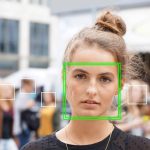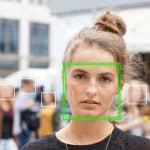ROC provides biometric SDK to group fighting human trafficking

U.S. biometrics firm ROC has announced a partnership with DeliverFund, a nonprofit intelligence organization, to help address the problem of human trafficking.
A release says DeliverFund is an organization of former military and law enforcement professionals that offers proprietary technology to help partners fight human trafficking at scale. To assist in the effort, ROC is donating its software development kit (SDK), including its proprietary deduplication technology, to enable DeliverFund to provide more refined data to law enforcement agencies.
The SDK enables face, fingerprint and iris matching. Deduplication features reduce identity fragmentation by allowing law enforcement to cross-reference and unify suspect data across agencies, systems and geographies.
The integration is expected to help with suspect identification and accelerating victim recovery efforts.
“Human trafficking is one of the greatest human rights issues of our time,” says B. Scott Swann, CEO of ROC. “DeliverFund’s work is saving lives. We’re honored to contribute our technology to help ensure traffickers are identified and held accountable, no matter where they operate or how they try to hide.”
Nic McKinley, CEO of DeliverFund, says ROC’s biometric technology “significantly enhances the precision and effectiveness” of the firm’s intelligence capabilities.
“This is about using advanced technology with the highest ethical standards to end modern slavery,” he says.
Ethical use key to ROC’s vision for biometrics, AI
A recent blog from ROC looks further at the ethical angle, suggesting its camera systems can help improve public safety without invading privacy. For example, it says, “in major international airports, AI-assisted surveillance helps detect human trafficking by recognizing patterns associated with victims and traffickers. In urban centers, predictive policing models use data to identify crime hotspots.”
These, however, are controversial proposals for many who fear the potential for overreach or abuse of biometric surveillance systems. ROC knows this, and addresses this issue frankly: “many systems raise ethical questions about mass monitoring and data collection. However, modern solutions aim to balance safety with civil liberties by using anonymized data processing to prevent unnecessary tracking of individuals, transparent governance on how video analytics are used and who can access them, and community oversight to ensure responsible use of security technologies.”
Unsurprisingly, AI plays a role in ROC’s vision – and also in its code of ethics. “As AI-driven biometric and surveillance technologies become more advanced, they must be fair, secure, and privacy-conscious, minimizing harm while maximizing societal benefits,” ROC says. “Ensuring transparency and accountability means having clear policies about how biometric data is collected, stored, and used. Strong data privacy measures, such as encryption, anonymization, and strict access controls, are essential to safeguarding individuals’ biometric information.”
ROC has had a successful year to date, previously announcing a top placement in the National Institute of Standards and Technology (NIST) Face Recognition Technology Evaluation (FRTE) in the category of biometric accuracy for law enforcement, border security and travel applications.
Article Topics
biometric identification | biometric matching | biometrics | facial recognition | fingerprint biometrics | iris biometrics | responsible biometrics | ROC | SDK








Comments